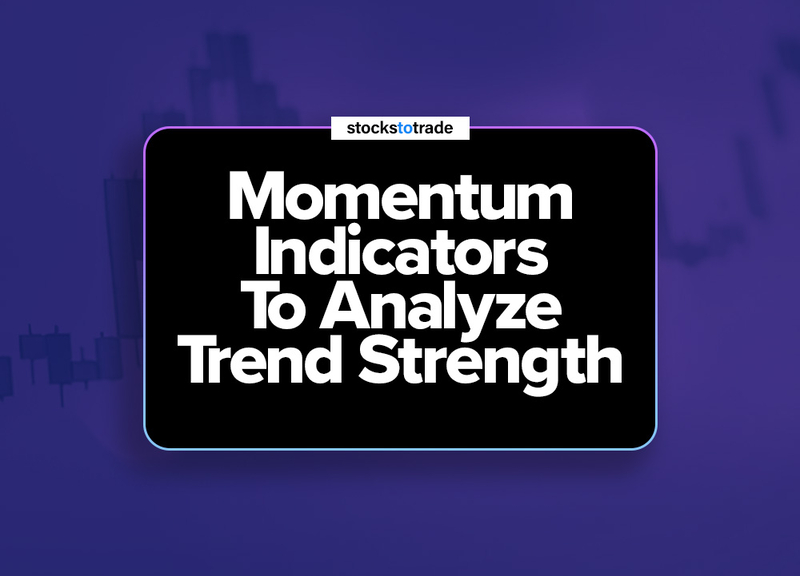Did you know that the average day trader spends more time staring at charts than a cat does watching a laser pointer? However, unlike cats, traders can get themselves into some serious trouble if they're not careful. In this article, we dive into the common pitfalls faced by day traders employing momentum strategies. From the dangers of overtrading and the importance of robust risk management to the psychological factors that can lead to costly errors, we cover the essential aspects that can make or break your trading success. Additionally, we explore why having a solid trading plan is vital and how emotional decision-making can derail even the best strategies. Avoiding unrealistic expectations and understanding the impact of market news are also key topics. With insights from DayTradingBusiness, you'll learn how to steer clear of these mistakes and enhance your trading performance.
What are the most common mistakes in day trading momentum strategies?
The most common mistakes in day trading momentum strategies include:
1. Chasing Losses: Trying to recover losses by doubling down on losing trades.
2. Ignoring Volume: Neglecting to confirm momentum with sufficient trading volume can lead to false signals.
3. Lack of Risk Management: Failing to set stop-loss orders or manage position sizes can result in significant losses.
4. Overtrading: Taking too many positions based on emotional reactions rather than solid analysis.
5. Focusing on Short-Term Gains: Losing sight of long-term trends can lead to missed opportunities.
6. Inadequate Research: Relying on superficial analysis instead of thorough market research and data.
7. Emotional Trading: Allowing fear or greed to dictate decisions instead of sticking to a strategy.
Avoiding these pitfalls can improve the effectiveness of your momentum trading strategy.
How can overtrading affect momentum trading success?
Overtrading can severely undermine momentum trading success. It leads to higher transaction costs, which eat into profits. Frequent trades can also result in emotional decision-making, causing you to overlook solid setups. Additionally, overtrading might dilute focus, making it harder to track key momentum indicators. This can ultimately lead to losses instead of capitalizing on trends. Prioritizing quality over quantity in trades is essential for effective momentum strategies.
Why is risk management crucial in momentum day trading?
Risk management is crucial in momentum day trading because it protects your capital from significant losses. This strategy often involves rapid trades with high volatility, making it easy to incur large losses if a position moves against you. Proper risk management helps set stop-loss orders, determine position sizes, and allocate capital wisely, ensuring you can stay in the game even after a bad trade. Without it, traders can quickly deplete their accounts, making it hard to recover and continue trading effectively.
What role does market psychology play in momentum trading errors?
Market psychology significantly influences momentum trading errors by leading traders to make impulsive decisions based on emotions rather than data. Traders may overreact to news, causing them to chase price movements, which can result in buying high and selling low. Fear of missing out (FOMO) can drive traders to enter positions too late, while panic selling during downturns often leads to losses. Additionally, herd behavior can exacerbate mistakes, as traders follow the crowd instead of relying on their analysis. Understanding these psychological factors is crucial for avoiding common pitfalls in momentum trading.
How can traders avoid chasing losses in momentum trading?
Traders can avoid chasing losses in momentum trading by sticking to a well-defined trading plan. Set clear entry and exit points based on analysis, and adhere to stop-loss orders to limit losses. Avoid the impulse to double down on losing trades; instead, reassess the market conditions. Keep emotions in check by taking breaks and reflecting on decisions. Focus on high-probability setups rather than trying to recover losses quickly. Additionally, maintain a disciplined mindset and remind yourself that losses are part of trading.
What are the pitfalls of relying solely on technical indicators?
Relying solely on technical indicators can lead to several pitfalls. First, indicators often lag behind price movements, causing delayed reactions to market changes. This can result in missed opportunities or entering trades too late. Second, they can provide false signals, leading to poor decision-making. Over-reliance on indicators may also ignore fundamental factors that drive market behavior, like news or economic data. Additionally, using too many indicators can create analysis paralysis, making it hard to make clear decisions. Lastly, market conditions can change rapidly, rendering past patterns ineffective, so flexibility and adaptation are crucial.
How does emotional decision-making impact momentum strategies?
Emotional decision-making can skew momentum strategies by causing traders to react impulsively to market fluctuations. For instance, fear of missing out (FOMO) might lead to jumping into trades too late, while panic selling can result in exiting positions prematurely. This emotional turbulence disrupts the disciplined approach needed for effective momentum trading, often leading to losses instead of gains. To mitigate these impacts, traders should establish clear rules and stick to them, reducing emotional influence on their decisions.
What Are Common Mistakes in Day Trading Momentum Strategies?

Common mistakes in day trading momentum strategies include:
1. Ignoring risk management, leading to significant losses.
2. Overtrading, which increases transaction costs and reduces profit margins.
3. Failing to confirm momentum signals with additional indicators.
4. Chasing after stocks that have already peaked, resulting in late entries.
5. Letting emotions dictate trading decisions, rather than following a plan.
6. Neglecting to set stop-loss orders, increasing potential losses.
7. Misjudging market conditions, which can turn momentum against you.
Learn more about: What Are Day Trading Momentum Strategies?
Why is it important to have a trading plan for momentum trading?
A trading plan is crucial for momentum trading because it provides clear entry and exit points, helping traders manage risk and avoid emotional decisions. It establishes rules for when to buy or sell based on market movements, which is essential in the fast-paced environment of momentum trading. Without a plan, traders may chase losses or enter trades impulsively, leading to costly mistakes. A well-defined strategy allows for consistent evaluation of trades, improving overall performance and discipline.
How can traders misinterpret momentum signals?

Traders can misinterpret momentum signals by overreacting to short-term price spikes, mistaking noise for a trend. They might also ignore broader market context, leading to false confidence in a momentum trade. Relying solely on indicators without considering volume can give a skewed view of momentum strength. Additionally, failing to set proper stop-loss levels can result in significant losses when momentum shifts unexpectedly. Lastly, confirmation bias can cause traders to only focus on signals that support their existing positions, leading to poor decision-making.
What mistakes do novice traders make with entry and exit points?
Novice traders often make several key mistakes with entry and exit points in day trading momentum strategies.
1. Ignoring Market Trends: They frequently enter trades against prevailing trends, leading to losses.
2. Poor Timing: Many rush into trades without waiting for confirmation signals, resulting in missed opportunities or bad entries.
3. Overtrading: They may enter too many positions at once, diluting focus and increasing risk.
4. Setting Inflexible Exit Strategies: New traders often fail to adjust stop-loss and take-profit levels based on market conditions, which can lead to larger losses or missed gains.
5. Emotional Decision-Making: Letting fear or greed dictate entry and exit points can cloud judgment and lead to poor trade execution.
6. Neglecting Risk Management: They often risk too much of their capital on a single trade, ignoring the importance of position sizing.
7. Lack of a Clear Plan: Many trade without a defined strategy, leading to inconsistent entry and exit points.
Focusing on these areas can help novice traders improve their effectiveness in executing day trading strategies.
How does lack of discipline lead to failures in momentum trading?
Lack of discipline in momentum trading leads to failures by causing traders to deviate from their strategies, resulting in poor decision-making. Without discipline, traders might chase losses, overtrade, or exit positions prematurely, missing out on potential gains. Emotional responses can cloud judgment, leading to impulsive trades based on fear or greed. Sticking to a well-defined plan is crucial; without it, traders can easily lose track of market signals and trends, undermining their momentum strategy.
What are the dangers of ignoring market news and events?
Ignoring market news and events can lead to significant losses in day trading momentum strategies. Key dangers include:
1. Price Volatility: Major news can cause sudden price swings, catching traders off guard.
2. Missed Opportunities: Ignoring events means missing potential trades that could capitalize on market reactions.
3. Increased Risk: Lack of awareness of economic reports or geopolitical events heightens the risk of holding positions during unfavorable conditions.
4. False Signals: Traders may misinterpret technical indicators without considering the broader market context influenced by news.
5. Poor Timing: Ignoring events can lead to entering or exiting trades at suboptimal times, affecting overall profitability.
Stay informed to navigate the market effectively and enhance your trading strategy.
How can unrealistic expectations lead to mistakes in day trading?
Unrealistic expectations in day trading can lead to significant mistakes. When traders anticipate quick profits without understanding the risks, they often over-leverage their positions. This can result in larger losses than expected. Additionally, expecting every trade to be a winner can lead to poor decision-making, such as holding onto losing trades too long or failing to cut losses. Traders might also ignore market signals, chasing after trends instead of sticking to their strategies. Ultimately, these unrealistic views can create emotional trading, leading to impulsive actions and further mistakes.
Why should traders avoid comparing themselves to others?
Traders should avoid comparing themselves to others because it can lead to unrealistic expectations and emotional decision-making. Each trader has a unique strategy, risk tolerance, and market understanding. Focusing on personal progress fosters discipline and helps refine your momentum strategies. Comparison can create anxiety and distract from your trading plan, ultimately hindering performance and growth. Stay focused on your own results and learning journey instead.
What are the effects of poor timing in momentum trading?
Poor timing in momentum trading can lead to significant losses. Entering too late means you might miss the bulk of the price movement, while exiting too early can cause you to forfeit potential profits. Failing to recognize trend reversals can result in holding losing positions longer than necessary. Additionally, poor timing can increase the risk of getting caught in false breakouts, leading to quick losses. Overall, it disrupts the effectiveness of momentum strategies, making risk management and timing crucial for success.
How can inadequate preparation contribute to day trading errors?
Inadequate preparation can lead to day trading errors by causing traders to misinterpret market signals, overlook critical data, and fail to develop effective strategies. Without thorough research, traders might enter positions based on emotions rather than analysis, increasing the risk of losses. Poor risk management can also result from a lack of preparation, leading to oversized trades that can quickly deplete capital. Furthermore, insufficient practice with trading platforms can lead to execution mistakes, such as entering incorrect order types or sizes. Overall, inadequate preparation undermines decision-making and increases the likelihood of costly errors in momentum strategies.
Conclusion about Common Mistakes in Day Trading Momentum Strategies
Avoiding common mistakes in day trading momentum strategies is essential for success. Traders should focus on disciplined execution, robust risk management, and a solid understanding of market psychology. By recognizing pitfalls such as overtrading, emotional decision-making, and reliance on technical indicators, traders can improve their performance. Having a well-defined trading plan and staying informed about market news will further enhance decision-making. Remember, learning from mistakes is part of the journey, and with the guidance and resources from DayTradingBusiness, traders can navigate the complexities of momentum trading more effectively.
Learn about Common Mistakes in Day Trading Scalping and How to Avoid Them